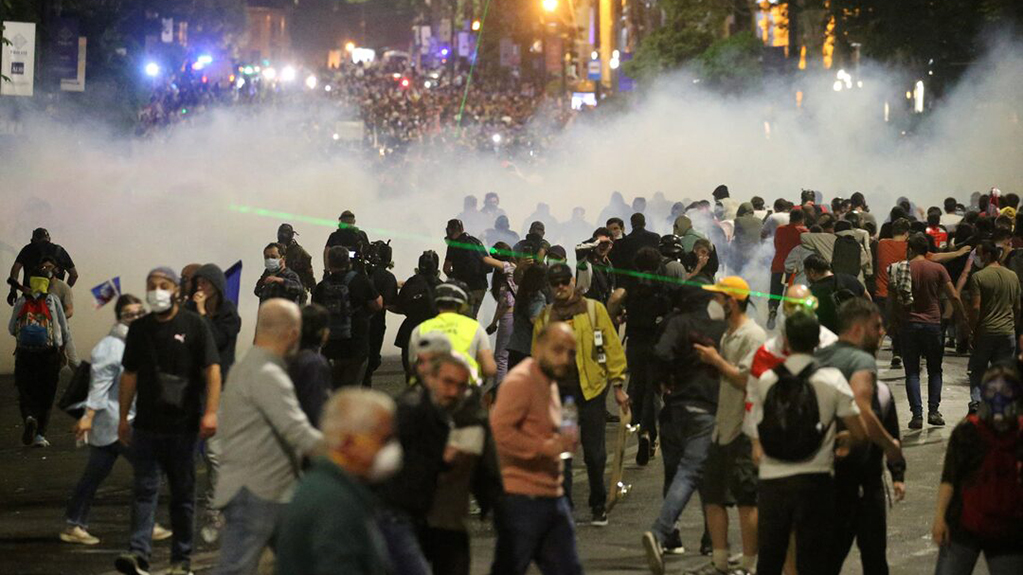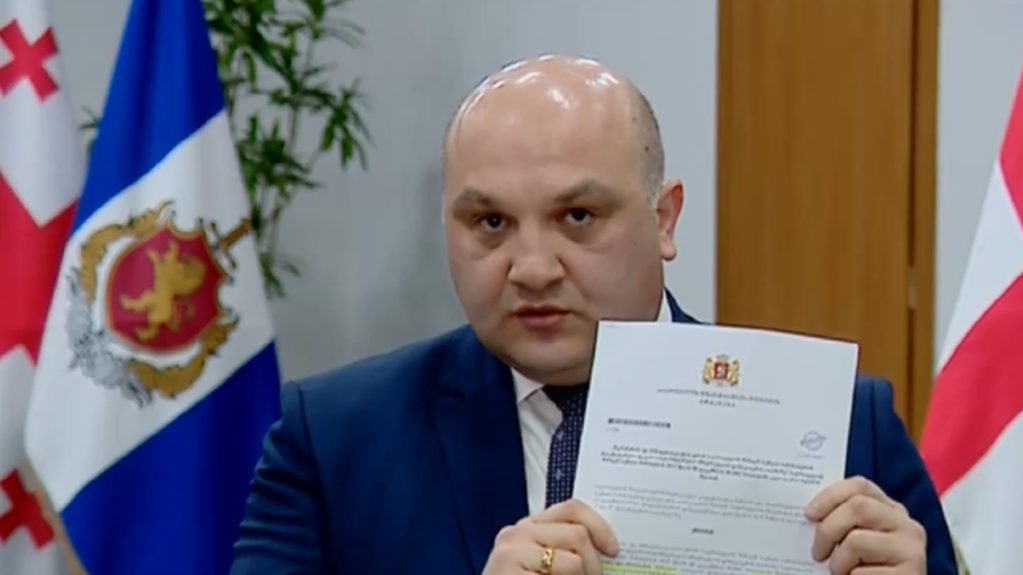The Deputy Minister of Internal Affairs, Aleksandre Darakhvelidze, announced that the directive issued by the Minister's 2015 order, which prohibited the simultaneous use of water cannons and tear gas during the dispersal of rallies, has been revoked.
News
Darakhvelidze explained on the pro-government television channel Rustavi 2 that Vakhtang Gomelauri's order of July 11, 2021, provides new instructions for the police, which are "in absolute compliance" with international standards.
"After reviewing the fact that no international act prohibits this, and moreover, that many European countries actively use similar methods, often in combination, a new directive was issued for our police officers on July 11, 2021. This directive no longer contains any such prohibitions. This is supported by several international guidelines, including documents from Amnesty International and the OSCE, which explicitly state that water cannons and tear gas can be used together. The primary aim is for violent rally participants to vacate the area, while ensuring they have a safe way to leave the protest site. Several European countries, including Germany and France, use this approach regularly.
No legal act prohibits the simultaneous use of water cannons and tear gas. The only stipulation is that there should be a prior warning, which we have taken into account, and people should not be trapped, which we have also considered," stated Aleksandre Darakhvelidze.
According to the Deputy Minister of Internal Affairs, this directive was sent to the chairperson of the Georgian Young Lawyers' Association (GYLA), Nona Kurdovanidze, in 2023.
"We have issued order N1002 to all non-governmental organizations that requested it, and we have listed five for you here. The public is being deliberately misled," Darakhvelidze added.

On October 21, after the Ministry of Internal Affairs confirmed that tear gas and water cannons were used simultaneously in April-May against participants protesting the Russian Law, GYLA issued a statement asserting that this action violated the Ministry's order N1002.
"This order is not publicly available in the official gazette, and GYLA requested it from the ministry during the monitoring of various actions. It remains unclear on what basis the Ministry of Internal Affairs claims that there is no prohibitive norm regarding the simultaneous use of active special means. If this is true, it means the Ministry has worsened the operational guidelines for dispersing demonstrations and changed the relevant rule," the human rights organization stated.
According to GYLA, Amnesty International’s guidance document allows for chemical substances or paint to be mixed into water jets, but it emphasizes the negative consequences of such practices.
"Mixing water and chemicals makes it impossible to control the amount of irritant and may also have a prolonged effect on individuals," GYLA noted, adding that Amnesty International’s guidelines specifically prohibit the use of water jets with chemicals or paint.
As per international standards, these special measures should only be used proportionately, legally, and with minimal intensity. Both water cannons and tear gas should only be deployed when strictly necessary to control a violent assembly, and when the level of violence is such that targeted measures against violent individuals are insufficient. However, these means should not be used simultaneously or in parallel," GYLA concluded.
The Ministry of Internal Affairs has repeatedly used water cannons and tear gas against peaceful demonstrators during protests against the Russian Law.















